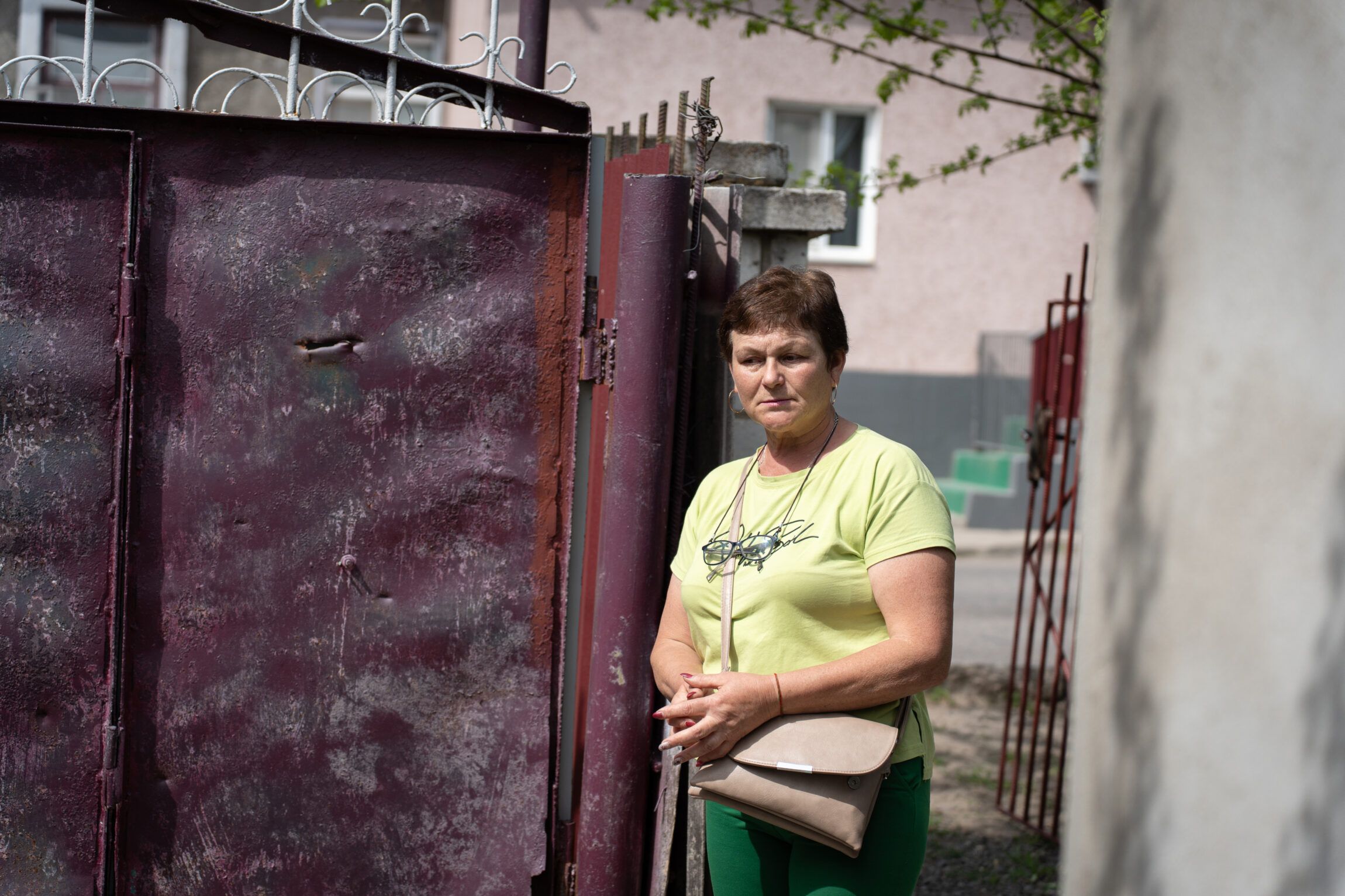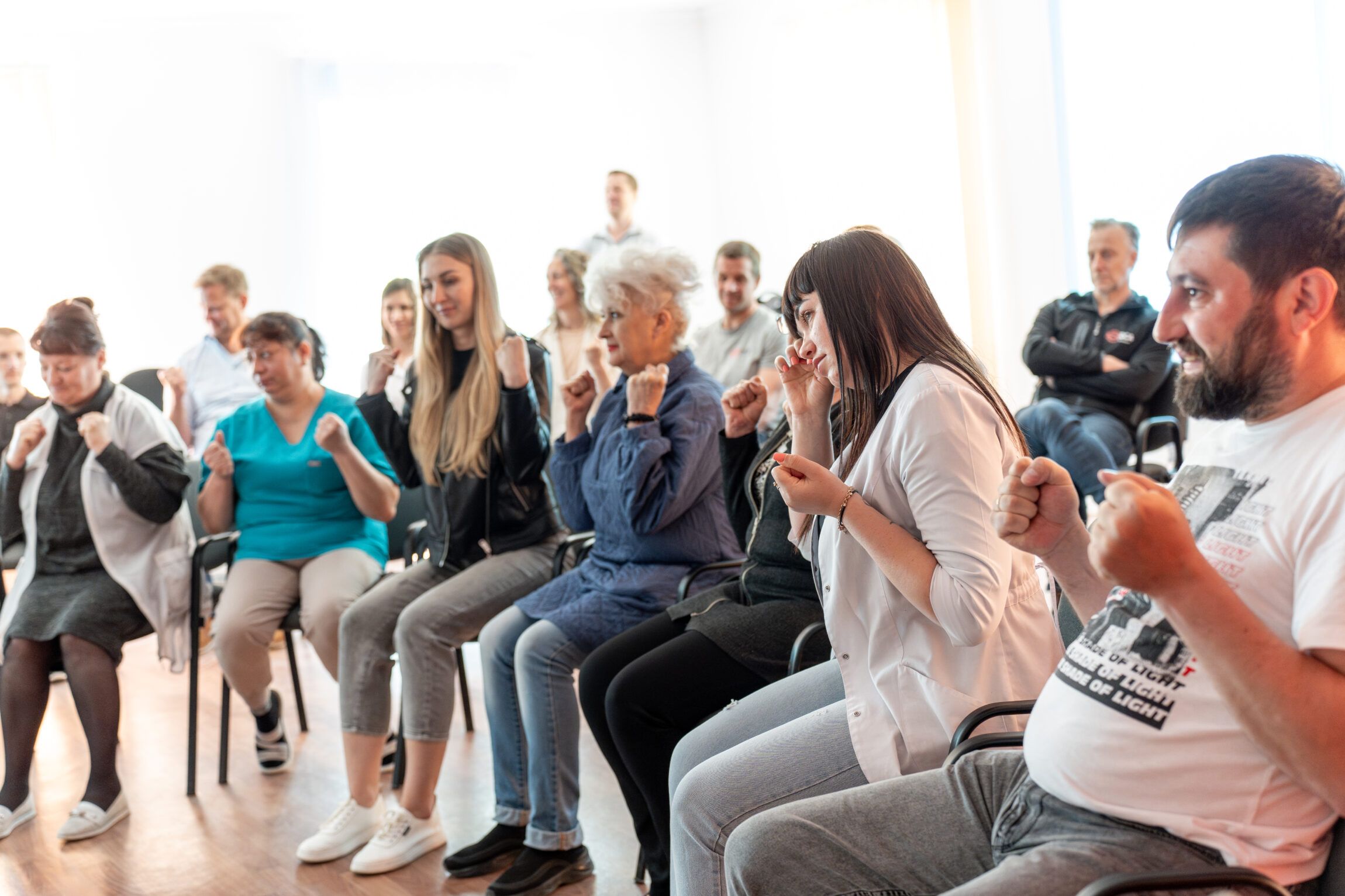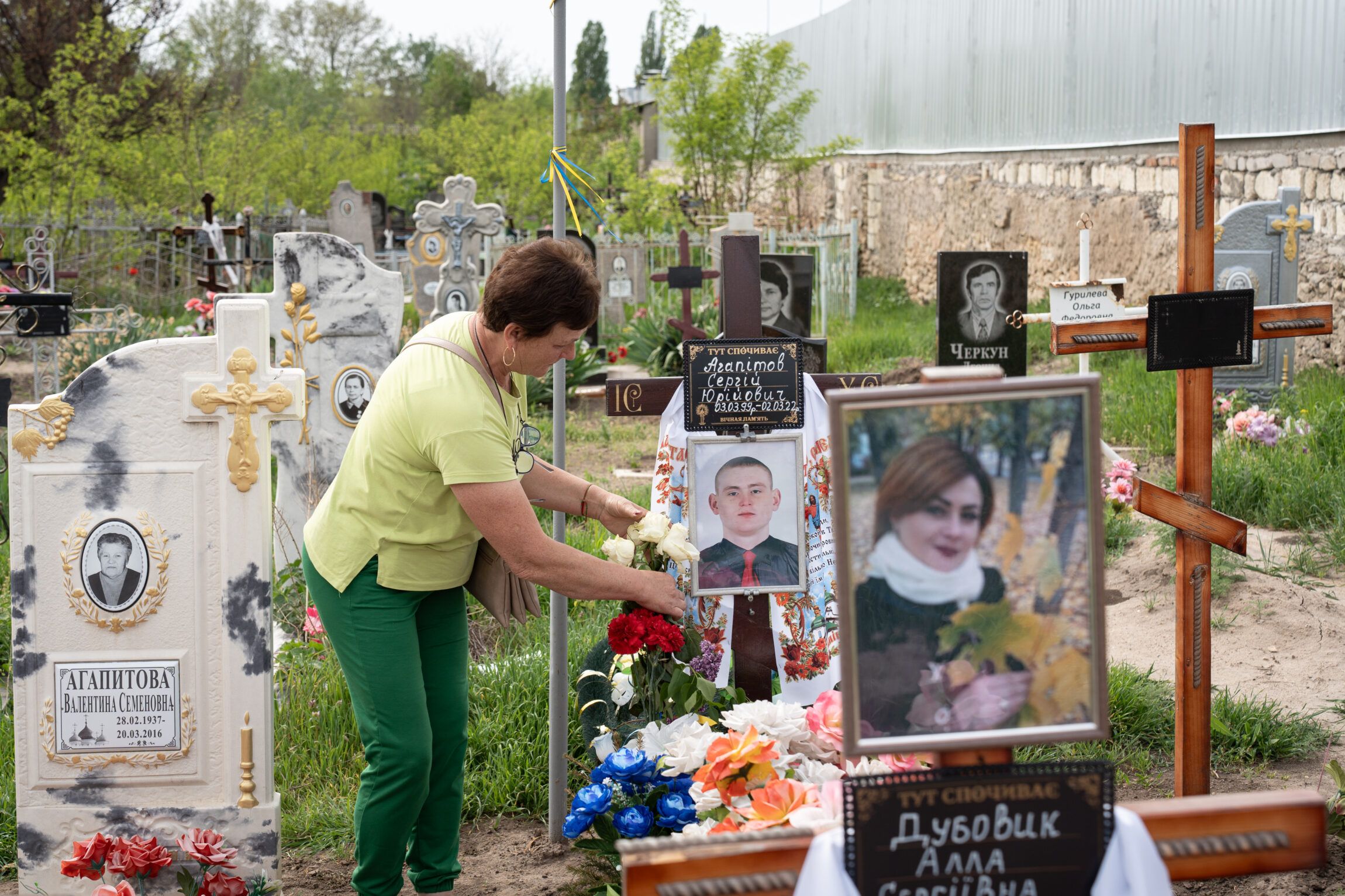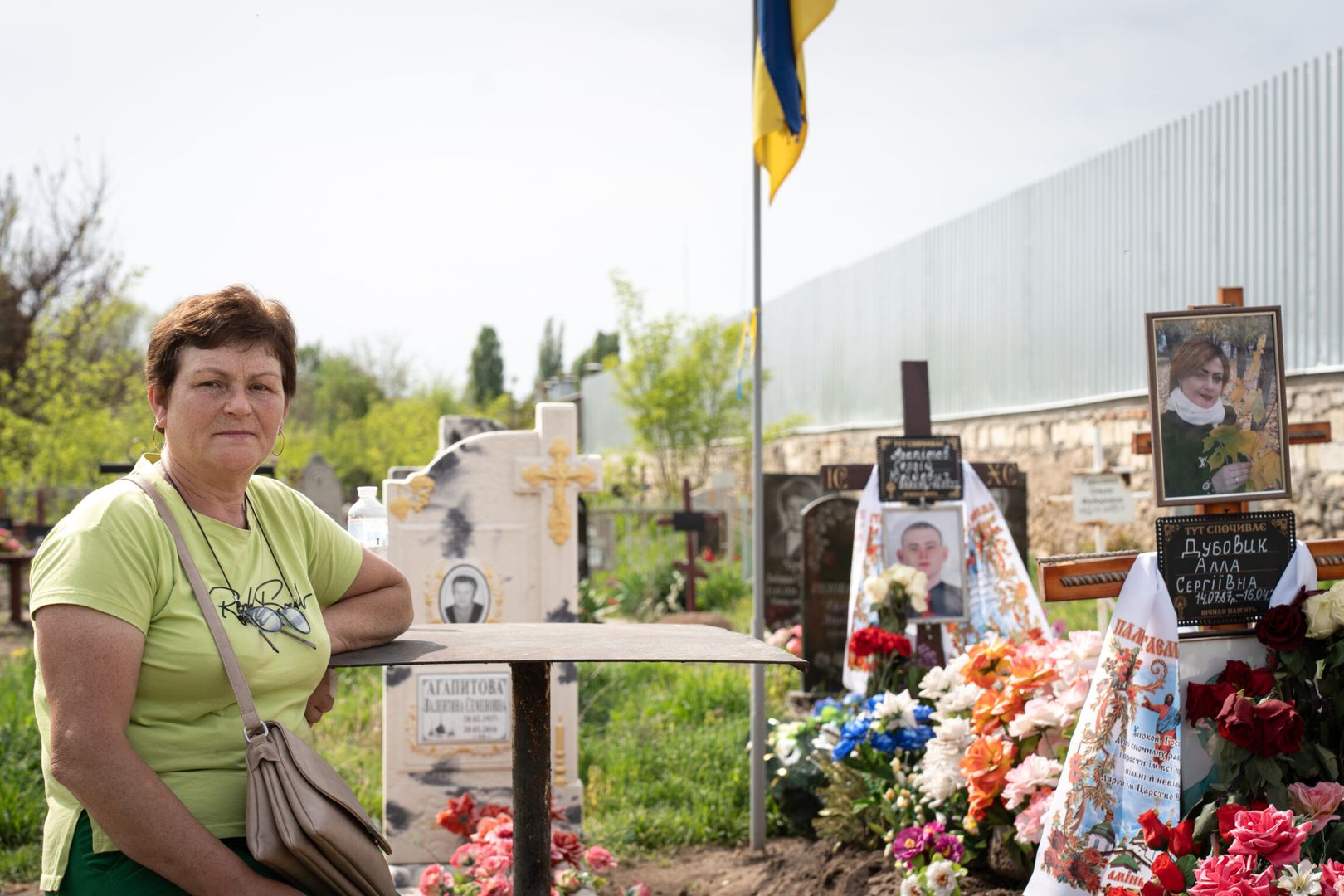Just six days into the conflict in Ukraine, the worst imaginable happened to Hanna. Her son, Serhii, had enlisted in the Ukrainian territorial defence forces to defend their hometown of Voznesens’k in southern Ukraine, but now he no longer answered the phone.
“I searched everywhere for him, and finally I was told to try down by the river, where there had been battles over a bridge. I went there, and that’s where I found my son’s body,” says Hanna.
Hanna takes out her phone and shows a surveillance video. The video shows a narrow street and a purplish-red gate. Behind the gate, Serhii hides from a tank on the other side of the river.
“Look,” says Hanna, “in a few seconds, my son dies.”
Sure enough, everything on the screen turns to gray dust in a powerful explosion, and her son is gone.

“Everything was in ruins and blood was everywhere,
when I came here to find my son. The fighting was
still going on”
Psychosocial support in Ukraine
Financed by NORAD, DCA/NCA is conducting psychosocial sessions to help people overcome the momentous challenge of speaking openly about their traumas and stress. Psychosocial support encompasses a range of interventions aimed at addressing the psychological and social needs of individuals affected by conflict. Through counseling, group sessions, and community-based initiatives, survivors are provided with a safe space to process their experiences, confront their pain, and rebuild their lives.
During the sessions, the participants are taught methods to reduce stress, to sleep at night and to communicate about difficult subjects with each other.

According to WHO, over 10 million people are living with mental health problems in Ukraine as a result of the war – that is close to a third of the population. This includes symptoms of post-traumatic stress disorder (PTSD), anxiety and depression.
Hanna spent two days gathering all parts of her son’s body in the yard behind the gate and on the street. She points to where she found his legs, head, and his heart.
“He died the day before his 23rd birthday, two years ago,” she says softly, continuing, “and today (April 16, 2024, ed.) marks exactly one year since my daughter died of a heart condition.”
The pain of losing two out of her three children – and the traumatic memories of spending two days while the war raged and bombs fell around her, gathering her son’s remains – has naturally left deep emotional and psychological scars on Hanna.
Happy memories reappeared through support
“For almost two years, I had not received any help to talk about my traumas. No psychologists or therapy. It all costs money, and I can’t afford it,” she says.
The first time Hanna had the opportunity to process her traumas was in January 2024 when she attended a group psychosocial session conducted by DCA/NCA staff.
“At first, I was sceptical if it would work. I participated in sessions where we spoke freely about what we had experienced and received training in breathing techniques and methods to calm ourselves. I learned to focus on happy memories of my son,” Hanna explains.
Through 11 sessions, Hanna has shown clear progress in her mental health. It helps her to sleep at night, and to talk openly about her son, daughter and the traumas of war.
“In my opinion, the greatest need for those who do not live close to the front line right now is psychological help. Everyone needs it. So many people live in fear. And so many hide their traumas. We need to talk about them, just like I needed to,” explains Hanna.

NCA/DCA is supported by NORAD
Psychosocial support activities in Ukraine are financed and support by The Norwegian Agency for Development Cooperation (NORAD).


